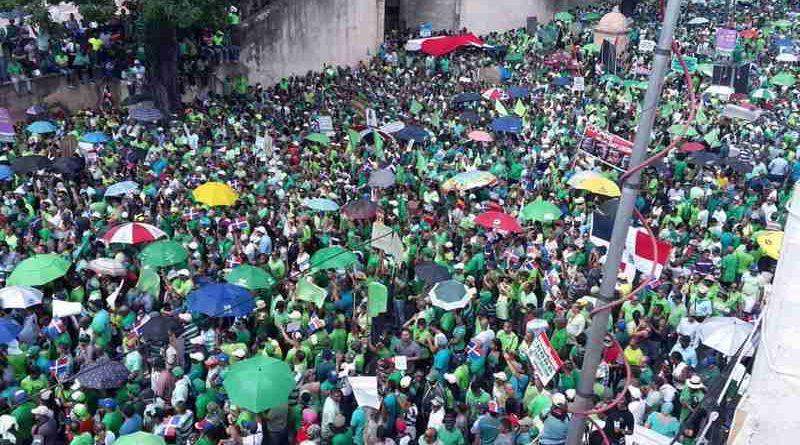Citizens March to End Corruption in Dominican Republic

Dominican civil society organisations and citizens have planned to participate in a nation-wide anti-corruption protest “National Mobilisation Day against Impunity,” today, February 22. They will also sign the “Green Books” available all around the country.
Global anti-corruption group Transparency International reports that citizen participation is key in starting the process to end corruption-related impunity in the Dominican Republic.
Following the ongoing corruption scandal of construction giant Odebrecht cascading across Latin America, according to Transparency, it came to light that the company bribed public officials in the Dominican Republic to win multi-million dollar contracts.
[ Transparency Report: Corruption Rampant in Modi’s India ]
A month ago, on January 22, thousands of citizens marched against impunity and corruption in the Dominican Republic. Many more have signed “Green Books” or petitions for independent prosecutors to further investigate the Odebrecht case in a more transparent way.
Today, according to Transparency, citizens from the Dominican Republic are showing the world that active participation, commitment and perseverance can effectively fight corruption.
It is reported that Odebrecht paid over 3 billion Dominican Pesos (US$62.9 million) in bribes to Dominican public officials. This is equivalent to a five-fold increase in the Dominican national health system (SENASA) investment in cancer treatments, or 72 times more investment in treatment for premature births.
[ Who Is Responsible for Crimes and Corruption in Delhi Schools? ]
It shows how the costs of bribery can perpetuate poverty and inequality, and deprive citizens of access to public services, said Transparency International.
It also welcomed the declaration signed by 10 prosecutors (including the Dominican Republic) on 17 February in Brasilia to collaborate on investigating Odebrecht, but calls on authorities to make this process transparent and allow civil society to monitor progress.
Transparency suggests that all countries affected by the Odebrecht case must continue effective judicial cooperation channels as provided for in the United Nations Convention against Corruption (UNCAC).
Photo / Video courtesy: Transparency International, Twitter / @CeroImpunidadRD
💛 Support Independent Journalism
If you find RMN News useful, please consider supporting us.




